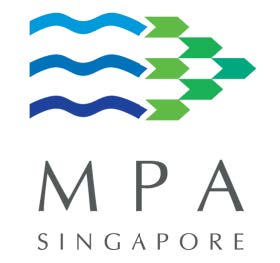With their permission, we also republish below
Ambrey’s recent threat assessment circular for our Members with vessels deployed in the region.
Situation
Tensions in the Red Sea have increased since the commencement of the Israel-Gaza conflict on the 7 October 2023. The Yemen-based Ansar Allah movement (the Houthis) launched its first missile and Unmanned Aerial Vehicle (UAV) attack toward Israeli territory on 19 October 2023. There have been several subsequent missile and UAV attacks toward Israel.
Twelve days after the initial air strike the Houthis claimed responsibility for the attacks and publicly threatened further attacks on Israel. On 14 November the Houthi leader, Abdul-Malik Badr al-Din al-Houthi, threatened Israeli shipping in the Red Sea directly for the first time, highlighting that the militant group was aware of Israeli vessels turning off their AIS signals before transiting the southern Red Sea. Furthermore, it was reported to Ambrey on 18 November 2023 that the Houthis would specifically target vessels withholding AIS transmissions.
Threat update
No vessels have been damaged during the targeting of Israeli territory. However, this remains a threat.
Furthermore, several projectiles have been intercepted over the sea and the debris poses a threat to crew members. On 19 November 2023, a Bahamas-flagged, Israeli-linked, vehicle carrier was seized on its voyage to India in the southern Red Sea, off Hodeida, Yemen. The vessel turned off its AIS transmissions 24 hours before the event approximately 250nm north of the incident location. Video footage published by the Houthis depicted that a group of eight to nine armed people took control of the vessel by jumping off a Military Mi-17 helicopter. Additionally, nine small boats were depicted escorting the vessel.
This is the first time the Houthis have conducted a boarding via helicopter. Seizing a merchant vessel via helicopter is an Iranian modus operandi. Israeli statements confirmed the seizure but claimed that the vessel was not Israeli.
The crew was multinational, but no Israeli national was reported to be aboard. The vessel is currently at Hodeidah anchorage.
The vessel's group owner was listed as Ray Car Carriers, who were in turn listed as a subsidiary of Abraham Rami Ungar, a company domiciled in Israel. Two more of their vessels have been halted from transiting the southern Red Sea since the incident occurred. A further subsidiary of Abraham Rami Ungar, Ray Shipping, suffered physical damage on two of its vessels from attacks in the Gulf region in 2021.
The incident displayed a significant increase in the Houthis’ capability to disrupt merchant shipping. In the past, the Houthi had only used sea mines, missiles, and remote-controlled improvised explosive devices in the Red Sea. UAVs had been successfully utilised to target stationary port facilities to disrupt oil and gas exports from south Yemeni, government-controlled, ports.Saudi Arabian ports were also targeted prior to an April 2022 ceasefire and have not reoccurred since the ceasefire lapsed in October 2022. An Iranian-style vessel seizure has not been witnessed before.
The taking of assets and hostages as demonstrated by Hamas, provides the Houthis with a negotiation lever, which an attack to cause physical damage, would have not. The sophistication of the operation suggests that Iranian involvement is highly likely. Ambrey is aware from highly credible sources that there has been increased Iranian activity prior to this incident both onshore and offshore, and limited if unreported retaliatory action.
Mitigation
Ambrey advises Company Security Officers to assess whether their vessel was owned or managed by an Israel-affiliated company within the last year. If the vessel is, it would be advised to:
·Assess the vessel’s route, particularly proximity to Islamic Revolutionary Guard Corps, Iranian Navy assets, and Houthi-controlled sites. It is advised to consider the predictability of the route.
·Identify the vessel’s planned ETA to those sites, and the position relative to other potential targets. A schedule adjustment might be recommended.
·It is advised to consider the electronic signals policy, including information and minimisation days before entry to the Red Sea, the Bab el Mandeb, and the Gulf of Aden.
·Bridge teams must be briefed and practiced on how to handle maritime harassment, including pre-prepared responses.
·Evasive manoeuvres and propulsion should be tested before entering the Red Sea, Bab el Mandeb, and the Gulf of Aden.
·The merchant vessel is hardened according to Best Management Practices to delay boarding and slow access to crew areas and control systems onboard the vessel.
·Crew members should be briefed on what to do in the event of boarding, including a policy on whether to disable the vessel’s navigation in busy shipping areas and the designation of a hardened citadel/safe muster point with control of fire suppression systems and independent communications systems.
·Crew are advised to adopt ballistic protection measures. Stand-off bar/cage/slat solutions are available and could help mitigate risk to key areas. Other measures include the designation of safe muster points, and the minimisation of crew movements on deck, and in areas with external walls.
·Emergency communications in the event of harassment, boarding, or an attack are documented and practiced. These should include military liaison, and designated crisis response coordinators. These can be added to the Ship Security Alert System emergency broadcast recipients.
·Vessels should proceed with increased awareness of military asset communications, including UKMTO, IMSC, EUNAVFOR, and independently deployed.
·Private Maritime Security Teams are advised to not escalate RUF, but they are advised to enhance Best Management Practices, by improvising measures, running drills and supporting with lookouts and advice to the bridge team.
Source:
Gard
The opinions expressed herein are the author's and not necessarily those of The Xinde Marine News.
Please Contact Us at:
media@xindemarine.com


 Baltic Exchange launches new Fuel Equivalence Conve
Baltic Exchange launches new Fuel Equivalence Conve  21 Consecutive Years of QUALSHIP 21 Recognition for
21 Consecutive Years of QUALSHIP 21 Recognition for  MPA and Wärtsilä Renew Partnership to Drive Marit
MPA and Wärtsilä Renew Partnership to Drive Marit  MPA and Dalian Maritime University Renew Partnershi
MPA and Dalian Maritime University Renew Partnershi  PSA INTERNATIONAL, DNV AND PACIFIC INTERNATIONAL LI
PSA INTERNATIONAL, DNV AND PACIFIC INTERNATIONAL LI  INTERCARGO Reaffirms Call for Simplicity as IMO Cli
INTERCARGO Reaffirms Call for Simplicity as IMO Cli